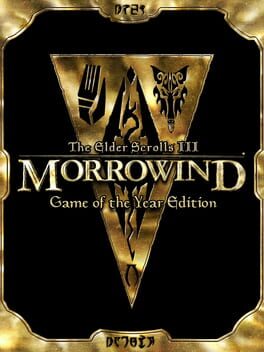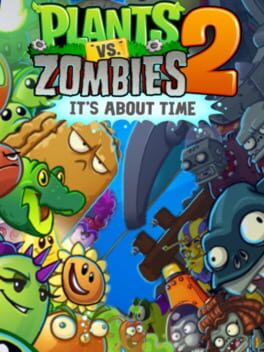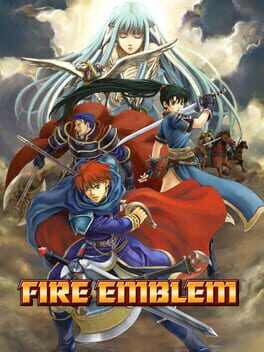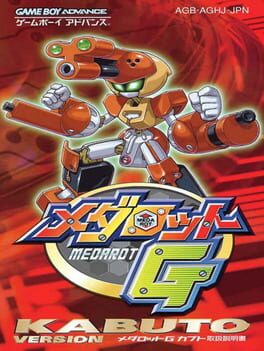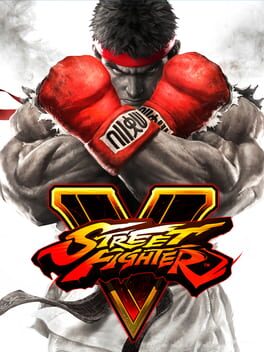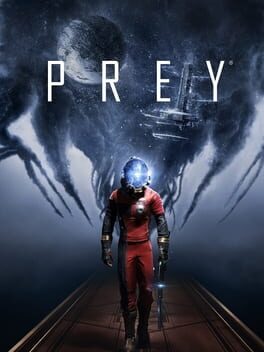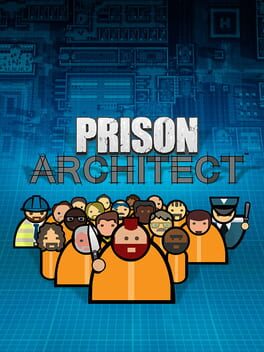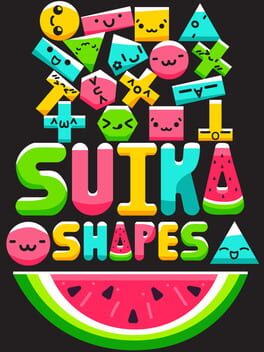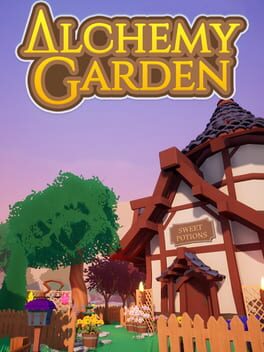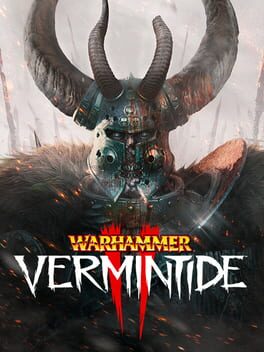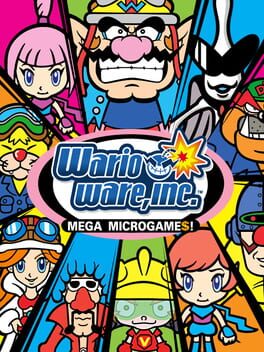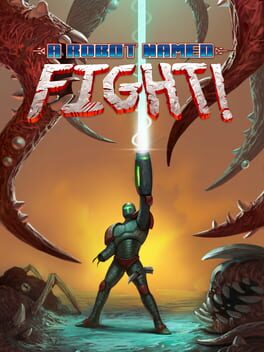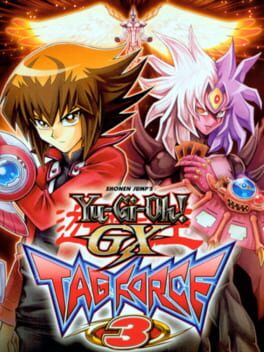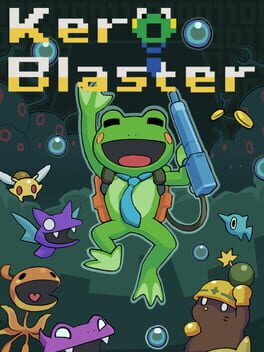Conger_Conger
2013
Yet another game I try in my quest to play something on my phone without resorting to emulation.
There isn't much to say as it's just another runner game, and not a particularly fun one because it's easy to lose due to pickups obstructing the view. Character cards are particularly bad.
On that note, that's the main way to unlock characters. The game is actually quite generous with them but as far as I can tell a legendary character is exactly the same as a common one.
Finally, your score is an arbitrary number times a multiplier instead of the distance traveled making it harder to figure out that you are actually not improving and higher scores are achieved through grinding instead of skill. What a joke.
There isn't much to say as it's just another runner game, and not a particularly fun one because it's easy to lose due to pickups obstructing the view. Character cards are particularly bad.
On that note, that's the main way to unlock characters. The game is actually quite generous with them but as far as I can tell a legendary character is exactly the same as a common one.
Finally, your score is an arbitrary number times a multiplier instead of the distance traveled making it harder to figure out that you are actually not improving and higher scores are achieved through grinding instead of skill. What a joke.
My point of reference for the Elder Scrolls was Skyrim because that's the game I played when I was a teen and it's also the game everyone around my age, give or take 10 years, played when they were teens because Bethesda won't make another one and just keeps re-releasing the fifth installment in the series.
While Morrowind is significantly more complex, I don't think it's any more difficult and I would even dare say it's rather accessible all things considered. It's not hard to steamroll all challenges the game throws at you after the introduction which is great because levitating around dropping skeletons on people is a ton of fun.
Morrowind gives a new meaning to the word freedom in comparison to later installments and now I understand why some people complain about streamlining. Other mechanics have become more obtuse funnily enough, such as the UI.
Another aspect that people lament about newer installments is the quality of the writing and that one is also legitimate. Morrowind has an alien world with a unique culture and the story actually has interesting characters and such. Some of them have 6 lines total but that's all they needed to become iconic.
On a different note, some aspects about the game are not as nice. I enjoy the lack of quest markers because you can actually get lost and discover new things on the road to your destination, but when you really want to find something NPC indications are often lacking and that can be really frustrating before you get some form of advanced navigation.
I'm also not a fan of the stat growth system. It basically makes it so you have to grind non major/minor skills to get the optimal level ups and I think I'd rather play the game normally so I think it's ok if you mod that out to always give you +5s. One could also argue the game is not difficult enough to warrant that but it's still kind of a bummer to have to deal with that.
Speaking of mods, the game is also prone to bugging out but thankfully there's Open Morrowind if you want a smooth vanilla or even modded experience.
In conclusion, Morrowind is truly a game like no other. If you can get past the first couple hours when your character is slow as a snail, fails every cast and can't hit the broad side of a barn then the game becomes a lot of fun.
It's a shame Bethesda will never make another game as good as this and, even if they did, they would add some barbaric monetization to it.
While Morrowind is significantly more complex, I don't think it's any more difficult and I would even dare say it's rather accessible all things considered. It's not hard to steamroll all challenges the game throws at you after the introduction which is great because levitating around dropping skeletons on people is a ton of fun.
Morrowind gives a new meaning to the word freedom in comparison to later installments and now I understand why some people complain about streamlining. Other mechanics have become more obtuse funnily enough, such as the UI.
Another aspect that people lament about newer installments is the quality of the writing and that one is also legitimate. Morrowind has an alien world with a unique culture and the story actually has interesting characters and such. Some of them have 6 lines total but that's all they needed to become iconic.
On a different note, some aspects about the game are not as nice. I enjoy the lack of quest markers because you can actually get lost and discover new things on the road to your destination, but when you really want to find something NPC indications are often lacking and that can be really frustrating before you get some form of advanced navigation.
I'm also not a fan of the stat growth system. It basically makes it so you have to grind non major/minor skills to get the optimal level ups and I think I'd rather play the game normally so I think it's ok if you mod that out to always give you +5s. One could also argue the game is not difficult enough to warrant that but it's still kind of a bummer to have to deal with that.
Speaking of mods, the game is also prone to bugging out but thankfully there's Open Morrowind if you want a smooth vanilla or even modded experience.
In conclusion, Morrowind is truly a game like no other. If you can get past the first couple hours when your character is slow as a snail, fails every cast and can't hit the broad side of a barn then the game becomes a lot of fun.
It's a shame Bethesda will never make another game as good as this and, even if they did, they would add some barbaric monetization to it.
As the sequel to one of the most beloved casual games from its time, Plants vs Zombies 2 had big shoes to fill.
I originally played the game back when I got my first smartphone and I ended up dropping it because of the frustrating energy system and paid plants.
10 years later and gaming has deterioted so much that I don't care anymore. Also, the main campaign can be played offline so what the heck?
I think the game is pretty good for the most part. I wouldn't recommend playing it over the first because it's a vastly different experience. The gameplay is more fast paced and sun is more abundant, making symmetry a liability and enabling the use of far more plants, especially instants, at the detriment of most cheap, early game attackers.
The game is divided into worlds, each with a different theme that adds some variation to both the visuals and the gameplay. I think the latter worlds are unnecesary long, but besides that I think it's all good. I think I wouldn't mind recommending the story mode.
However, as I hinted at before, this game is poisoned honey. Besides the campaign there are 2 other game modes, both online only and requiring heavy investment of either money or hours.
I can't fully recommend this game knowing that it's like a church next to a brothel, but the main campaign is pretty good. Just avoid the pay-to-play arena and Penny's time-gated bulletsponge extravaganza.
I originally played the game back when I got my first smartphone and I ended up dropping it because of the frustrating energy system and paid plants.
10 years later and gaming has deterioted so much that I don't care anymore. Also, the main campaign can be played offline so what the heck?
I think the game is pretty good for the most part. I wouldn't recommend playing it over the first because it's a vastly different experience. The gameplay is more fast paced and sun is more abundant, making symmetry a liability and enabling the use of far more plants, especially instants, at the detriment of most cheap, early game attackers.
The game is divided into worlds, each with a different theme that adds some variation to both the visuals and the gameplay. I think the latter worlds are unnecesary long, but besides that I think it's all good. I think I wouldn't mind recommending the story mode.
However, as I hinted at before, this game is poisoned honey. Besides the campaign there are 2 other game modes, both online only and requiring heavy investment of either money or hours.
I can't fully recommend this game knowing that it's like a church next to a brothel, but the main campaign is pretty good. Just avoid the pay-to-play arena and Penny's time-gated bulletsponge extravaganza.
The first Fire Emblem game to be localized in the West, it's the seventh installment but better late than never.
This one is a great introduction too because the first campaign doesn't require any previous knowledge and serves as a tutorial for the rest of the game. I should probably mention The Blazing Blade is a prequel to Fire Emblem 6, but it's not necessary to play that in order to understand the plot.
Overall, I really liked Fire Emblem 7. I don't think it's necessary to explain any further since the game speaks for itself and this isn't a particularly obscure series. I'd say it's even good for SRPG beginners.
This one is a great introduction too because the first campaign doesn't require any previous knowledge and serves as a tutorial for the rest of the game. I should probably mention The Blazing Blade is a prequel to Fire Emblem 6, but it's not necessary to play that in order to understand the plot.
Overall, I really liked Fire Emblem 7. I don't think it's necessary to explain any further since the game speaks for itself and this isn't a particularly obscure series. I'd say it's even good for SRPG beginners.
A 2D platform fighter spin-off based on the Medarot series.
The game maintains the series staple of having different attacks correspond to each part, enabling the player to customize their bots as they see fit. However, this does make the controls feel a little clunky because attacks have a cooldown to adapt the usual turn based combat to a real time setting.
Nevertheless, players get 2 basic attacks correcponding to each arm plus a special attack with limited ammo associated to their head piece. Each medal also has a unique medaforce.
The player is free to swap pieces around with those they have unlocked. Some may have more armor, but shorter cooldown while legs have special movement bonuses depending on the terrain, etc. The starting medarot is quite good regardless besides the somewhat low speed.
Also, the player's party has been decreased to 2 from the usual 3 but that's an acceptable compromise for the GBA's technical limitations. The player can only control 1 character in real time so an additional AI controlled unit wouldn't make that much of a difference.
I finished the game but I can't comment on the story because I don't speak Japanese. I think there's a tournament or something, definitely lower stakes than most games in the series.
I wanted to play this version because the Ax games have completely different designs for the most part, more in line with Medarot 2 which is more popular because of the anime and I wanted to see different designs.
I must say I wasn't disappointed in that regard and the game is quite fun for the 3 or so hours it takes to beat it.
The game maintains the series staple of having different attacks correspond to each part, enabling the player to customize their bots as they see fit. However, this does make the controls feel a little clunky because attacks have a cooldown to adapt the usual turn based combat to a real time setting.
Nevertheless, players get 2 basic attacks correcponding to each arm plus a special attack with limited ammo associated to their head piece. Each medal also has a unique medaforce.
The player is free to swap pieces around with those they have unlocked. Some may have more armor, but shorter cooldown while legs have special movement bonuses depending on the terrain, etc. The starting medarot is quite good regardless besides the somewhat low speed.
Also, the player's party has been decreased to 2 from the usual 3 but that's an acceptable compromise for the GBA's technical limitations. The player can only control 1 character in real time so an additional AI controlled unit wouldn't make that much of a difference.
I finished the game but I can't comment on the story because I don't speak Japanese. I think there's a tournament or something, definitely lower stakes than most games in the series.
I wanted to play this version because the Ax games have completely different designs for the most part, more in line with Medarot 2 which is more popular because of the anime and I wanted to see different designs.
I must say I wasn't disappointed in that regard and the game is quite fun for the 3 or so hours it takes to beat it.
2016
I'm far too much of a scrub to comment on the game proper. All I know is that the game's performance has been steadily declining ever since I first bought the game to the point that it barely runs on low specs mode now.
A lot of the games as a service stuff rubs me the wrong way too. I'm ok with DLC characters and such but there's far too much stuff that requires an Internet connection.
A lot of the games as a service stuff rubs me the wrong way too. I'm ok with DLC characters and such but there's far too much stuff that requires an Internet connection.
2017
Prey is what some people call an "immersive sim", I won't waste time defining what that means but I think it ranks about the same level as Bioshock in terms of interactivity, failing to equal the old classics in terms of complexity but being more accessible as a result which is probably what they wanted.
The locations where the player is meant to use a certain ability are marked with the same subtlety as a cracked wall in a Zelda dungeon, but there are often multiple ways to complete each objective and you can also do interesting things with the GLOO gun and certain abilities. Overall, for immersive sim fans Prey is pretty good.
There's a variety of neuromod abilities that the player can unlock, a staple of the genre ever since System Shock 2, and they are pretty useful for the most part. However, I think the only unique one is mimicry, all the others will be familiar to Bioshock players. I'm a little disappointed at the lack of futuristic weapons, but this makes sense in-universe because they mostly rely on turrets and the radiation beam is cool anyway.
That being said, the most noteworthy aspect about Prey for me is how inconsistent the experience is. At first it seems like it's going to be a horror game with difficult enemies that are preferable to avoid, and the game hints as such through tutorial pop-ups, but after a few upgrades nothing can really match the player anymore and resources are far too plentiful to ever be a major concern past the first few hours. By the end of the game there are a couple of "events" to mix up the gameplay and then the whole thing ends abruptly with a bunch of surface level philosophical "quandaries" that are about as black and white as Bioshock's.
Even more disappointing is the cast of NPCs that populates the station. Each one of them is one-dimensional, emotionally unstable and fills a diversity quota as if they were copy pasted from a spreadhseet. The only exceptions to this are the Morgan brothers who have actual goals, agency and personalities complex enough to allow for character development. You could say this wasn't the main focus of the game, but it's the only part that and the game relies far too much on radio calls to communicate goals to the player for me to ignore it. They wanted to make System Shock 2 and ended up with Borderlands almost.
To conclude, I think Prey is alright. It's not as memorable as Deus Ex or System Shock but those are big shoes to fill. They should have leaned on the mimics more instead of just making them trash mobs past the first 2 hours of the game.
The locations where the player is meant to use a certain ability are marked with the same subtlety as a cracked wall in a Zelda dungeon, but there are often multiple ways to complete each objective and you can also do interesting things with the GLOO gun and certain abilities. Overall, for immersive sim fans Prey is pretty good.
There's a variety of neuromod abilities that the player can unlock, a staple of the genre ever since System Shock 2, and they are pretty useful for the most part. However, I think the only unique one is mimicry, all the others will be familiar to Bioshock players. I'm a little disappointed at the lack of futuristic weapons, but this makes sense in-universe because they mostly rely on turrets and the radiation beam is cool anyway.
That being said, the most noteworthy aspect about Prey for me is how inconsistent the experience is. At first it seems like it's going to be a horror game with difficult enemies that are preferable to avoid, and the game hints as such through tutorial pop-ups, but after a few upgrades nothing can really match the player anymore and resources are far too plentiful to ever be a major concern past the first few hours. By the end of the game there are a couple of "events" to mix up the gameplay and then the whole thing ends abruptly with a bunch of surface level philosophical "quandaries" that are about as black and white as Bioshock's.
Even more disappointing is the cast of NPCs that populates the station. Each one of them is one-dimensional, emotionally unstable and fills a diversity quota as if they were copy pasted from a spreadhseet. The only exceptions to this are the Morgan brothers who have actual goals, agency and personalities complex enough to allow for character development. You could say this wasn't the main focus of the game, but it's the only part that and the game relies far too much on radio calls to communicate goals to the player for me to ignore it. They wanted to make System Shock 2 and ended up with Borderlands almost.
To conclude, I think Prey is alright. It's not as memorable as Deus Ex or System Shock but those are big shoes to fill. They should have leaned on the mimics more instead of just making them trash mobs past the first 2 hours of the game.
2015
As it should be obvious from the title, Prison Architect is a prison management simulator. The game puts the player in the shoes of an investor seeking to build a profitable prison through a combination of humanitarianism and harsh enforcement. The objective? Sell your prison for a profit and start all over again with a higher budget until you get bored of increasingly gigantic facilities.
The concept is great for a management sim. Prisoners are a ticking bomb if their needs are not met and some are just lunatics that find joy in causing wanton destruction. The player can also cut corners to an inhumane degree in order to make the prison as profitable as possible and you are always in an arm's race to find contraband and prevent escape attempts.
That being said, I'm only giving Prison Architect a positive review because the old 2018 version is still playable as a beta and the awful, useless, marketing tumor known as the Paradox launcher can be bypassed by editing the launch parameters.
Paradox have done a number on this game, the current vanilla version is a mess. You seriously can't find the items you need half the time because there are multiple redundant versions of some base game items and I could swear the game is somehow buggier than the 2018 beta.
As of late 2023 the final update looms closer and it seems like the game will remain in its sorry estate forever, but at the very least you can still cling to the past and play the version of the game that had potential rather than the one that fills you with regret of what could have been.
The concept is great for a management sim. Prisoners are a ticking bomb if their needs are not met and some are just lunatics that find joy in causing wanton destruction. The player can also cut corners to an inhumane degree in order to make the prison as profitable as possible and you are always in an arm's race to find contraband and prevent escape attempts.
That being said, I'm only giving Prison Architect a positive review because the old 2018 version is still playable as a beta and the awful, useless, marketing tumor known as the Paradox launcher can be bypassed by editing the launch parameters.
Paradox have done a number on this game, the current vanilla version is a mess. You seriously can't find the items you need half the time because there are multiple redundant versions of some base game items and I could swear the game is somehow buggier than the 2018 beta.
As of late 2023 the final update looms closer and it seems like the game will remain in its sorry estate forever, but at the very least you can still cling to the past and play the version of the game that had potential rather than the one that fills you with regret of what could have been.
2023
2019
In Alchemy Garden you don't really take care of a garden and you'll instead spend the first hour of gameplay going around looking for random wild plants instead. You are also given a pickaxe instead of seeds for some inconceivable reason even though you need to sell about half a dozen potions to even afford the crafting table.
The process for creating potions feels anemic at best and as far as I could tell the only reason you make potions is so you can sell them to buy new floor tiles and such. You can't even purchase seeds in any significant amount and you instead buy, once again, completely random seeds, one at a time for a maximum of maybe 6 per week in total.
Alchemy Garden feels like a prototype. Some mechanics are superfluous such as mining or chopping down trees which could be cut off without affecting the game by much while other mechanics that you'll use constantly such as watering plants or crafting potions are far too shallow. This is the sort of thing that you solve as you continue development and have people actually play the game. I mean if you plant seeds close to one another, which is optimal for watering, then you run the risk of not being able to harvest them later because you just can't interact with stuff sometimes.
I think that in order to be a worthwhile game Alchemy Garden would need to have a more involved gardening and crafting processes and some kind of goal besides replacing the floorboards. As it stands I don't think I can recommend it.
The process for creating potions feels anemic at best and as far as I could tell the only reason you make potions is so you can sell them to buy new floor tiles and such. You can't even purchase seeds in any significant amount and you instead buy, once again, completely random seeds, one at a time for a maximum of maybe 6 per week in total.
Alchemy Garden feels like a prototype. Some mechanics are superfluous such as mining or chopping down trees which could be cut off without affecting the game by much while other mechanics that you'll use constantly such as watering plants or crafting potions are far too shallow. This is the sort of thing that you solve as you continue development and have people actually play the game. I mean if you plant seeds close to one another, which is optimal for watering, then you run the risk of not being able to harvest them later because you just can't interact with stuff sometimes.
I think that in order to be a worthwhile game Alchemy Garden would need to have a more involved gardening and crafting processes and some kind of goal besides replacing the floorboards. As it stands I don't think I can recommend it.
I wanted to play this game for a couple of hours just to see how it was and now I'm over 80 hours on record. I really needed to relax so it's probably for the best, but I digress.
Vermintide 2 is a straight upgrade for Vermintide 1, most of the core mechanics make a return so the biggest difference is the new content. By this I mean new classes, maps, challenges, etc.
As a result for anyone who didn't like the first one the sequel is unlikely to win them over but for those who do there's pretty much no reason to play the first game over this one. As I said, it's a straight upgrade.
However, for people who don't enjoy games like Left4Dead Vermintide might just win them over thanks to the focus on melee combat. Lower difficulties might lead you to believe that spamming left click is all you need in order to win but you quickly learn that levels and talents are far less important than the moveset and properties of your current weapon. It's not too complicated when you break it down but being able to land headshots consistently and staggering certain enemies makes a world of difference. In short, the combat is largely skill based, a lot of fun and had enough depth to keep me interested even after the 10.000th Skaven slave kill.
Another aspect which I found endearing were the Ubersreik Five, also known as the playable cast. They have a lot of personality and the casual interactions between them are just overflowing with character. It really makes you give a damn about what you are doing in each mission, especially if you are anything like me and prefer playing with bots most of the time.
On that note, the game can't be played offline which is a real shame since that is possible in the console version. I would really like if it was for conservation purposes because I really like this game.
About the story, you don't really need to play the first game in order to understand what's going on. If you want to get into Warhammer Fantasy don't blame me when you are reading wiki articles at 4 AM. It's a lot of fun though and enhances the game immensely because there's a significant degree of attention to detail when it comes to made-up lore.
Finally, the game has some DLC but it's downright generous by current standards (and compared to Darkide). Most of it is cosmetic and I think the characters already look pretty good by default. Also, what classes and weapons are meta change with the time so it's not like any of it is mandatory to stay relevant. Right now as I'm writing this the strongest class is Witch Hunter Captain which you unlock after beating the tutorial.
Anyway, this game is great and I hope it doesn't die when it stops being profitable to keep the servers up.
Vermintide 2 is a straight upgrade for Vermintide 1, most of the core mechanics make a return so the biggest difference is the new content. By this I mean new classes, maps, challenges, etc.
As a result for anyone who didn't like the first one the sequel is unlikely to win them over but for those who do there's pretty much no reason to play the first game over this one. As I said, it's a straight upgrade.
However, for people who don't enjoy games like Left4Dead Vermintide might just win them over thanks to the focus on melee combat. Lower difficulties might lead you to believe that spamming left click is all you need in order to win but you quickly learn that levels and talents are far less important than the moveset and properties of your current weapon. It's not too complicated when you break it down but being able to land headshots consistently and staggering certain enemies makes a world of difference. In short, the combat is largely skill based, a lot of fun and had enough depth to keep me interested even after the 10.000th Skaven slave kill.
Another aspect which I found endearing were the Ubersreik Five, also known as the playable cast. They have a lot of personality and the casual interactions between them are just overflowing with character. It really makes you give a damn about what you are doing in each mission, especially if you are anything like me and prefer playing with bots most of the time.
On that note, the game can't be played offline which is a real shame since that is possible in the console version. I would really like if it was for conservation purposes because I really like this game.
About the story, you don't really need to play the first game in order to understand what's going on. If you want to get into Warhammer Fantasy don't blame me when you are reading wiki articles at 4 AM. It's a lot of fun though and enhances the game immensely because there's a significant degree of attention to detail when it comes to made-up lore.
Finally, the game has some DLC but it's downright generous by current standards (and compared to Darkide). Most of it is cosmetic and I think the characters already look pretty good by default. Also, what classes and weapons are meta change with the time so it's not like any of it is mandatory to stay relevant. Right now as I'm writing this the strongest class is Witch Hunter Captain which you unlock after beating the tutorial.
Anyway, this game is great and I hope it doesn't die when it stops being profitable to keep the servers up.
A collection of psychotic minigames featuring Wario and company.
The meat of the game is definitely the arcade mode where you select the difficulty and try to complete as many minigames as possible with some unlockable extras as a reward since beating every main stage can't take you longer than a couple hours at most.
I really like the style and sound design of the game, but the minigames themselves can be a little repetitive as most of them consist solely on timing a single button press. If it wasn't for that I would consider the first WarioWare to be a must play because it's hilarous.
The meat of the game is definitely the arcade mode where you select the difficulty and try to complete as many minigames as possible with some unlockable extras as a reward since beating every main stage can't take you longer than a couple hours at most.
I really like the style and sound design of the game, but the minigames themselves can be a little repetitive as most of them consist solely on timing a single button press. If it wasn't for that I would consider the first WarioWare to be a must play because it's hilarous.
2017
A Robot Named Fight! didn't exactly convince me that procedural generation is superior to hand crafted levels when it comes to metroidvanias, but it's still a technically impressive feat to actually make something like this, especially for a lone developer.
The game itself is quite fun too. I didn't like the movement at first but that's only because the mechanic has to accomodate for a random number of speed upgrades. However, I quickly got used to it.
The random upgrades for progression work really well too, although getting an otherwise useless ability to traverse the terrain instead of a shot modifier or weapon is still kinda lame. That's just how this genre works; not all runs can be winners.
The game itself is quite fun too. I didn't like the movement at first but that's only because the mechanic has to accomodate for a random number of speed upgrades. However, I quickly got used to it.
The random upgrades for progression work really well too, although getting an otherwise useless ability to traverse the terrain instead of a shot modifier or weapon is still kinda lame. That's just how this genre works; not all runs can be winners.
Continuing the trend of every Tag Force title improving upon the last one, Tag Force 3 has got more cards and characters to either partner with or duel. Otherwise the title is really similar to past entries with the same setting, although it contains some new story for filthy dub watchers because it takes place during the fourth season of the anime.
These old Yu-Gi-Oh! games are great in the sense that they let you experience a slice of the game's history but it's unfortunate how it also forces you to participate in dumb trends from the time. A small amount of content is download exclusive which means you can't get it without cheats or completing like 90% of the game.
Apart from that the starting deck is still garbage. It's such a pain to start one of these games and spending the first hour grinding through packs to get the cards you actually want.
Overall, I think Tag Force 3 is great for the duel simulation aspect and fanservice, but I can't believe you still have to grind this much in the third entry.
These old Yu-Gi-Oh! games are great in the sense that they let you experience a slice of the game's history but it's unfortunate how it also forces you to participate in dumb trends from the time. A small amount of content is download exclusive which means you can't get it without cheats or completing like 90% of the game.
Apart from that the starting deck is still garbage. It's such a pain to start one of these games and spending the first hour grinding through packs to get the cards you actually want.
Overall, I think Tag Force 3 is great for the duel simulation aspect and fanservice, but I can't believe you still have to grind this much in the third entry.
2014
A really fun and charming platformer. I find the art appealing despite the low resolution and the music is really good too. I think the difficulty is average but there are a couple of harder bonus modes after beating the main story. The premise itself is rather amusing to me.
The game is also lightweight and runs on pretty much anything so it's an easy recommendation.
The game is also lightweight and runs on pretty much anything so it's an easy recommendation.

